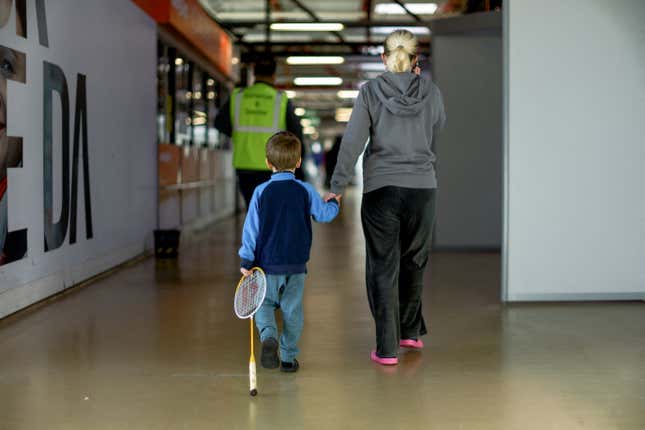
Over the course of a year of cruel war, Ukrainians grew kinder to each other, according to the 2023 edition of the World Happiness Report, released today (March 20). Acts of benevolence proliferated in Ukraine through 2022—and they fell almost as dramatically in Russia over the same year.
The report, a sweeping annual survey, seeks to assess how happy people across the world are—and why. It is compiled by experts from several universities, using life evaluations from the Gallup World Poll, which surveys a representative sample of adults from every country.
As part of its annual publishing cycle, the World Happiness Report has been tracking trajectories of benevolence in Russia and Ukraine over the last decade. Overall, Ukrainians’ overall evaluation of their own lives was higher in the wake of the 2022 Russian invasion than in the months following Russia’s annexation of Crimea in 2014.
The report asks people to score their lives on a ladder between 0 and 10, a measure known as the Cantril ladder. The best possible life gets a 10, and the worst possible life a 0. Between 2013 and 2015, Ukrainians’ evaluation of their lives fell by almost a whole point, to 4 on the Cantril ladder. By 2021, that evaluation for Ukrainians was back up above 5, last seen pre-2012. In the first year of the war, the score has dropped but it remains above 4.5.
“Despite the magnitude of suffering and damage in Ukraine, life evaluations in September 2022 remained higher than in the aftermath of the 2014 annexation, supported now by a stronger sense of common purpose, benevolence, and trust in Ukrainian leadership,” the report’s authors wrote. “Confidence in their national governments grew in 2022 in both countries, but much more in Ukraine than in Russia.”
How to be kind in wartime
To measure happiness, the academics behind the report, which has been surveying people across the globe since 2013, take into account a range of factors. These include how people describe their own mental health, what level of trust they have in those around them (including strangers and national leaders), and how likely they are to help others. “Prosocial” behavior, for example, includes donating to charity, volunteering time, and helping strangers.
Prosociality varies by region, and often even across the breadth of a continent. “Before the pandemic, prosociality was significantly higher in Western than in Eastern Europe, averaging 23% in Eastern Europe and 38% in Western Europe,” the authors wrote, meaning that those proportions of the populations were involved in “prosocial acts.” In 2021, prosociality was up by 2% in Western Europe and by 17% in Eastern Europe, erasing the pre-pandemic gap,” the report added.
The most stark difference between Ukraine and Russia lies in their trajectories of prosocial behavior. In 2019, Russians were only slightly more likely than Ukrainians to have made a donation or helped a stranger in the past month. Both measures rose in 2020 and 2021, in line with a global increase in kindness associated with the pandemic. But in 2022, the two countries moved in opposite directions.
Russia invaded Ukraine in February 2022. During that year, the likelihood that Ukrainians would donate to a cause rose by two points on the ten-point scale used by the researchers. The likelihood that they’d help a stranger also rose by about half a point. Among Russians, donations fell by more than a point on the scale, and the likelihood of helping someone fell by more.
“Increased benevolence and trust in government are frequently found in times of crisis, especially if the population is united in a common cause,” wrote the report’s authors. They did point out, though, that Ukrainians were still negatively affected by the war in net happiness terms. The share of the population experiencing a high amount of worry rose from around 30% in 2021 to around half in 2022.
In Russia, meanwhile, the report’s findings point to a country where benevolence dwindled, and in which mistrust and a desire to look inward are on the increase—in contrast both to Ukraine, and to the global average. For Russians, the average evaluation of their lives declined every year between 2014 and 2021, a steady erosion of happiness as the country grew more authoritarian. In 2022, though, Russians rated their lives higher in happiness, by about the same amount as the Ukrainians downgraded theirs.